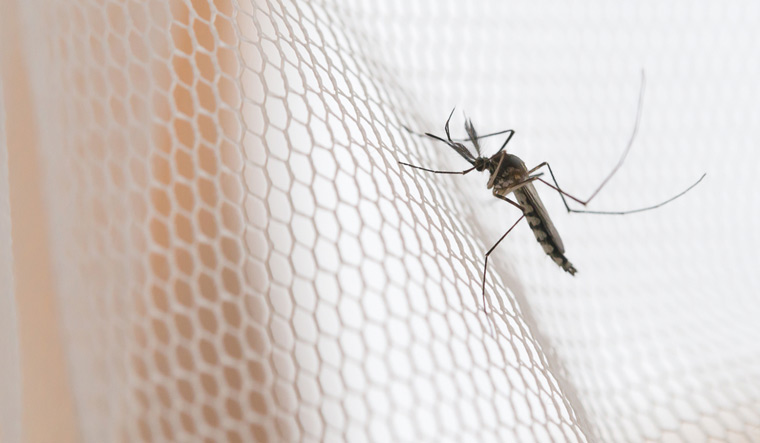Scientists have genetically modified mosquitoes with the ability to slow the growth of malaria-causing parasites in their gut, an advance that can help prevent transmission of the disease to humans.
These engineered mosquitoes produce compounds which impede the growth of malaria-causing parasites, which are then unlikely to reach the mosquitoes' salivary glands and be passed on in a bite before the insects die.
Researchers from the Institute for Disease Modeling at the Bill and Melinda Gates Foundation developed a model which can assess the impact of such modifications if used in a variety of African settings.
They found that the modification in question could be effective even where transmission is high.
While the technique, described in a paper published in Science Advances journal. has been shown to dramatically reduce the possibility of malaria spread in a lab setting, if proven safe and effective in real-world settings, it could offer a powerful new tool to help eliminate malaria.
The disease is transmitted between people through a female mosquito after it bites someone infected with the malaria parasite. The parasite then develops into its next stage in the mosquito's gut and travels to its salivary glands, ready to infect the next person the mosquito bites.
However, only around 10 per cent of mosquitoes live long enough for the parasite to develop far enough to be infectious. The team aimed to lengthen the odds even further, by extending the time it takes for the parasite to develop in the gut.
Researchers from the Transmission:Zero team at Imperial College London, UK, genetically modified the main malaria-carrying species of mosquito in sub-Saharan Africa, Anopheles gambiae, such that the mosquito produces antimicrobial peptides in its guts, when it takes a blood meal.
These peptides impair the malarial parasite's development by interfering with the energy metabolism of the parasite and also, causing the mosquitoes to have a shorter lifespan and further hampering their ability to pass on the parasite.
By the time, the next parasite stage could reach the mosquito salivary glands, most mosquitoes in nature are expected to die.
"We need to develop innovative new tools because mosquitoes and the parasites they carry are becoming resistant to available interventions such as insecticides and treatments, and funding has plateaued," said co-first author of the study, Tibebu Habtewold.



